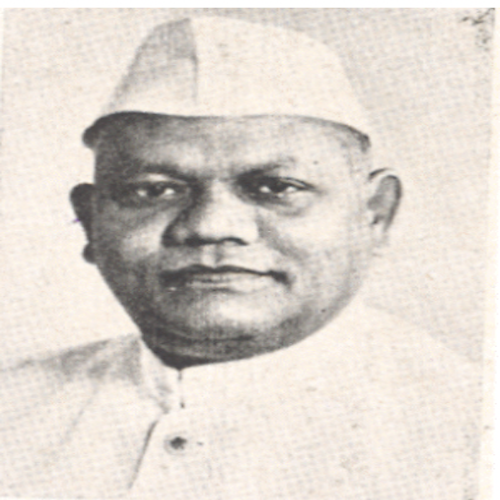Early Life
Raj Bahadur was born on 21st August 1912 in Bharatpur (present day Rajasthan, India). He completed his education at Sadar High School, Bharatpur; Maharaja’s High School and College, Jaipur, Agra College and St. Johns’ College, Agra and got his M.A., B.Sc. and LL.B degrees.
He was associated with Hindustan Socialist Republican Army from 1929-1930. Bahadur was a member of the Central Advisory Committee, Bharatpur State from 1939 to 1942 and was associated with the Bharatpur Praja Parishad Party which was affiliated to the All India States People’s Conference from 1939 to 1948. He became the Municipal Commissioner of Bharatpur State from 1941 to 1942. Bahadur was the Secretary and later the Vice-President of Bharatpur State Praja Praishad from 1943 to 1947. He was also a member of the Rajasthan Pradesh Congress Committee since its inception.
Role in India’s Independence Movement
Bahadur actively participated in the freedom struggle and he led the Indian Independence movement in the Bharatpur State (now Rajasthan) from 1940-41 to 1947. He was arrested twice.
Contribution to Constitution Making
He was elected to the Constituent Assembly from Rajasthan, Bharatpur through the Congress Party. He made interventions about the control and eradication of beggary, fee structure of the High Court, acquisition or requisitioning of property, to include the words ‘dangerously inflammable” and ‘corrosive or explosive’ and the importance of cinematograph films.
Later Contributions
Bahadur was the General Secretary of Matsya Union Congress Committee from 1948 to 1949. He was the member of the Rajasthan Pradesh Congress Committee since its inception. He was the President of Bharatpur Bar Association from 1948 to 1951.Bahadur was the member of the Provisional Parliament from 1950 to 1952 and the Secretary of the Congress Party in the Parliament from 1950 to 1952. He was the Deputy Minister of Communications from 1951 to 1956.
He also was the member of the First Lok Sabha from 1952 to 1957; Second Lok Sabha from 1957 to 1962, the Third Lok Sabha from 1962 to 1967 and the All Indian Congress Committee from 1952 to 1967.
He was a Minister in the Ministry of Communications from February 1956 to December 1956; the Minister of Communications from December 1956 to April 1957; the Minister of State in the Ministry of Transport & Communications from 1957 to 1962; the Minister for Shipping in the Ministry of Transport & Communications from 1962 to 1963; the Minister for Transport in charge of Shipping, Transport, Civil Aviation and Tourism from August 1963 to January 1966; the Minister of Information & Broadcasting from January 1966 to February 1967; the Ambassador for India in Nepal from January 1968 to January 1971 and was appointed as the Cabinet Minister for Parliamentary Affairs, Shipping & Transport on March 18, 1971.
He organised several social upliftment and welfare work amongst the backward classes and campaigned against begar (forced labour) in Bharatpur State.
- He spoke about the amendment to include the control and eradication of beggary in the Union list.
- He suggested the need to make the fee structure in every High Court uniform.
- He made interventions about the acquisition or requisitioning of property for the purposes of the Union.
- He suggested to the assembly to legislate with respect to the possession, storage, transport and sale of acids and to include the words ‘dangerously inflammable’ and ‘corrosive or explosive’ as acids have been misused even in ordinary disputes.
- He highlighted the importance of cinematograph films in the formation and moulding of national character.

